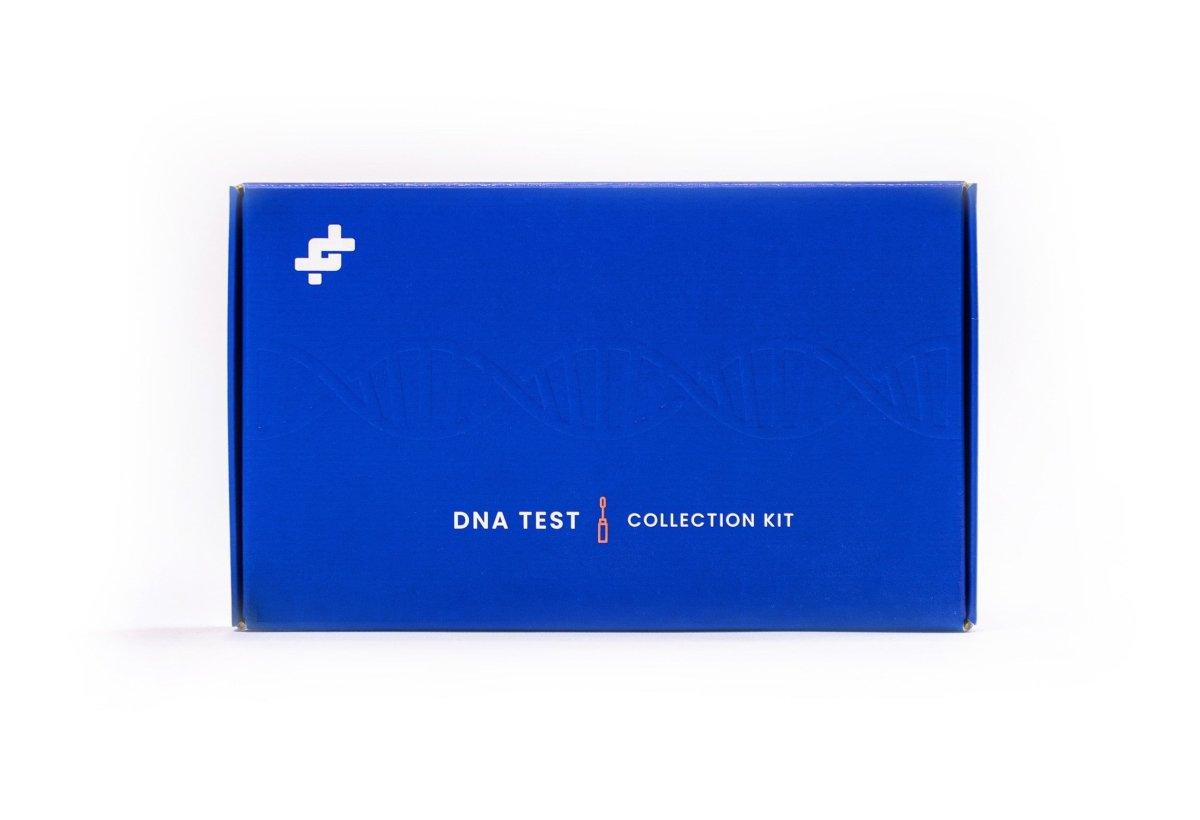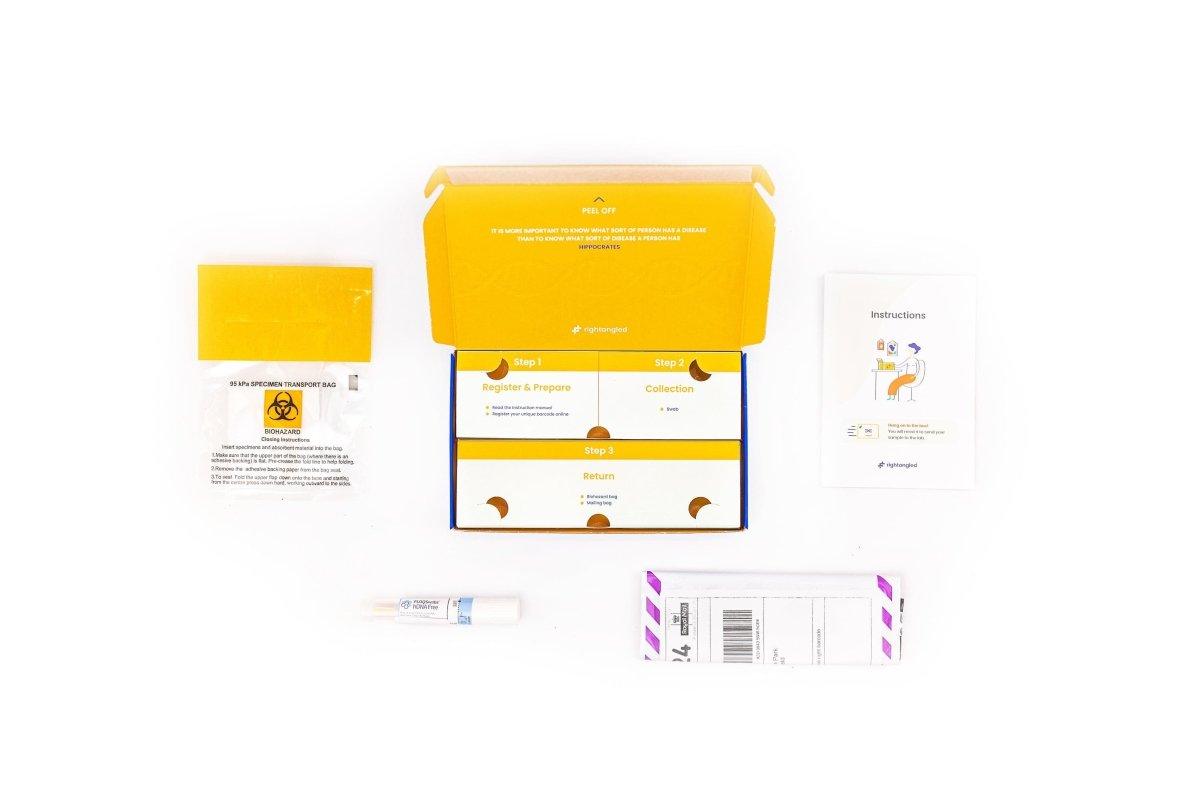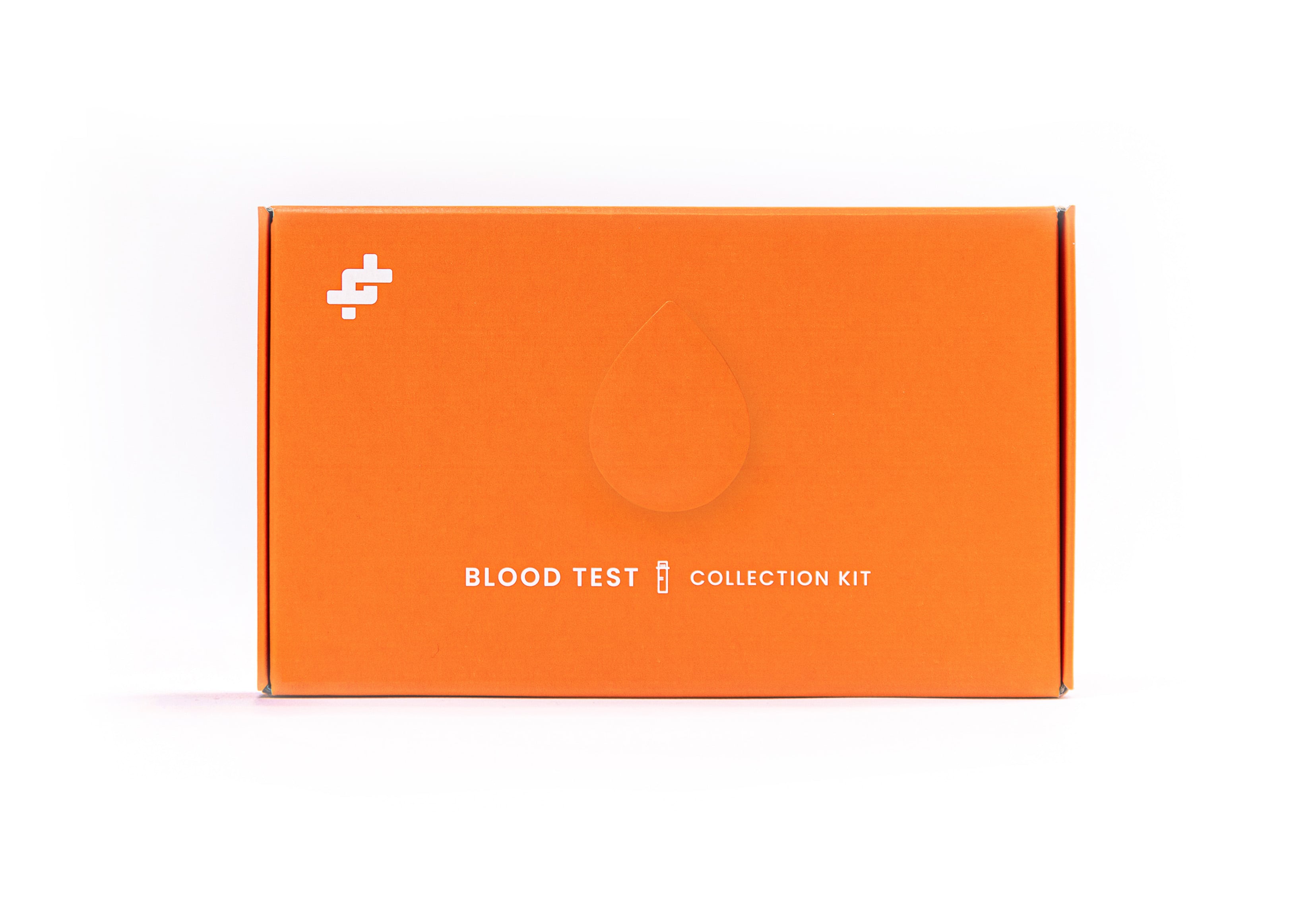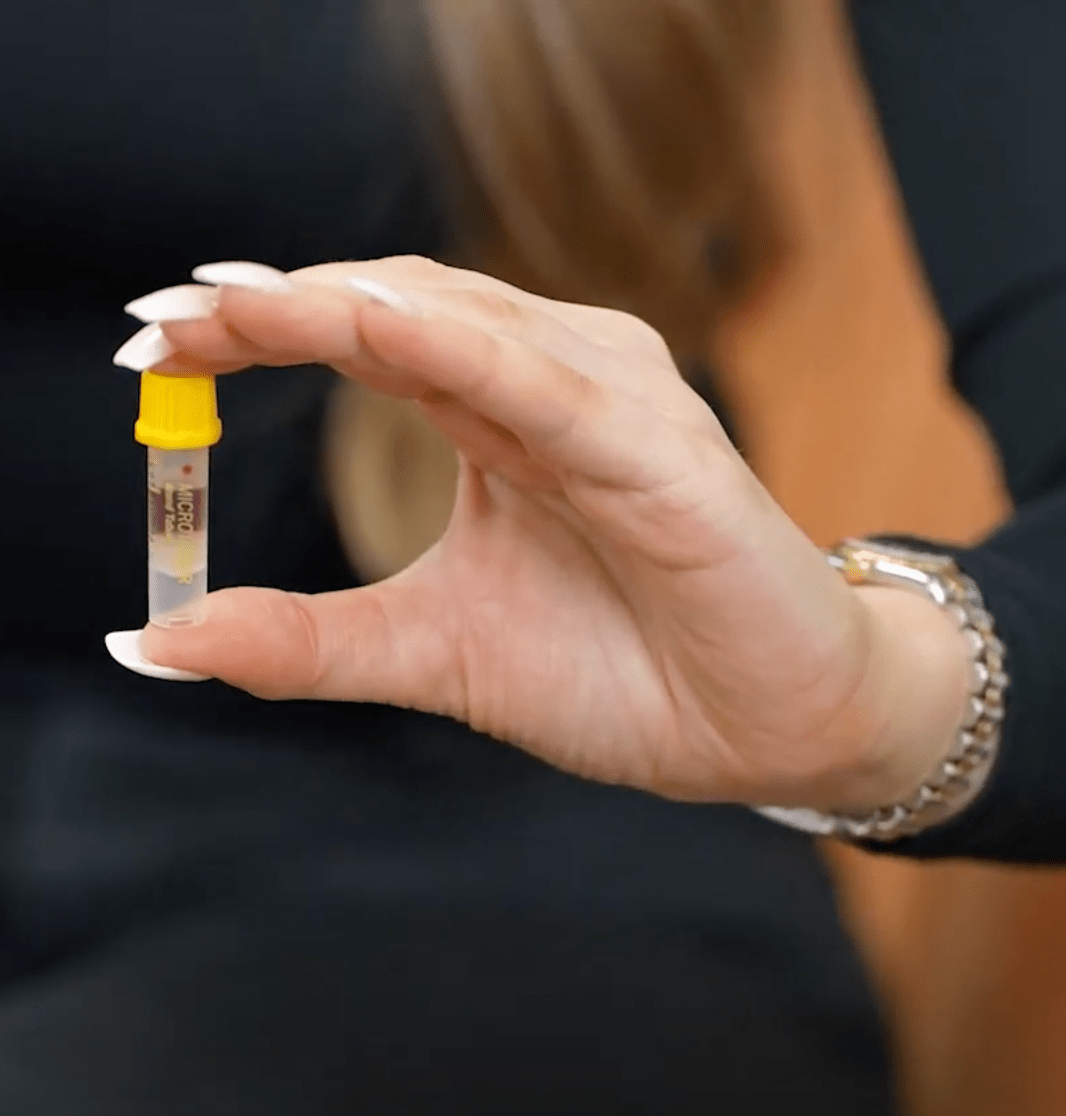


Diet & Nutrition DNA Test
Unlock personalized nutrition insights with our food and diet DNA test. Discover how your genetics impact your metabolism and nutrient needs, and receive a customized 19 reports to help optimize your diet and achieve your health goals. Get results from the comfort of your own home.
This genetic test measures your:
✔️ Lactose Intolerance
✔️ Fat and Glucose Metabolism
✔️ Caffeine metabolism
✔️ Alcohol response
✔️ Folate (B9)
✔️ Vitamin B12
✔️ Vitamin D
✔️ Vitamin A
Your predisposed sugar conversion and innate diet routines:
✔️ Feeling Full and Hunger Response
✔️ Energy Metabolism
✔️ Food Pleasure Response and Appetite
✔️ Binge Eating and Snacking Behaviour
✔️ Sugar Sensitivity (Sweet tooth)
✔️ Proinsulin Conversion rate
✔️ Fasting Blood Glucose
✔️ Glucose Regulation
✔️ Glucose Uptake Sensitivity
Sample collection method:
💦 Cheek swab
Couldn't load pickup availability
Pickup available at Rightangled HQ
Usually ready in 24 hoursPairs well with
If you have any questions, you are always welcome to contact us. We'll get back to you as soon as possible, within 24 hours on weekdays.
Contact Us
Reach out to us with any questions or feedback. Our team is available via email at info@rightangled.com to ensure you get the support you need.
Shipping Information
Receive your orders quickly and reliably. Choose from multiple delivery options at checkout for convenience and speed. All orders placed before 3 pm are processed on the same day.
Customer Support
Our dedicated team is here to help you every step of the way. Contact us for assistance with orders, tests, or any other inquiries. We are available Monday to Friday between 8 am and 5 pm, and on Saturdays between 9 am and 1 pm.
FAQ’s
Find answers to commonly asked questions about our services, tests, and procedures. Our help centre proovides quick solutions and detailed information.
How it works
Share information about your brand with your customers. Describe a product, make announcements, or welcome customers to your store.




Test details
Diet and Nutrition
Body & Weight Management
Tested biomarkers
FAQs
Please read our FAQs page to find out more.
